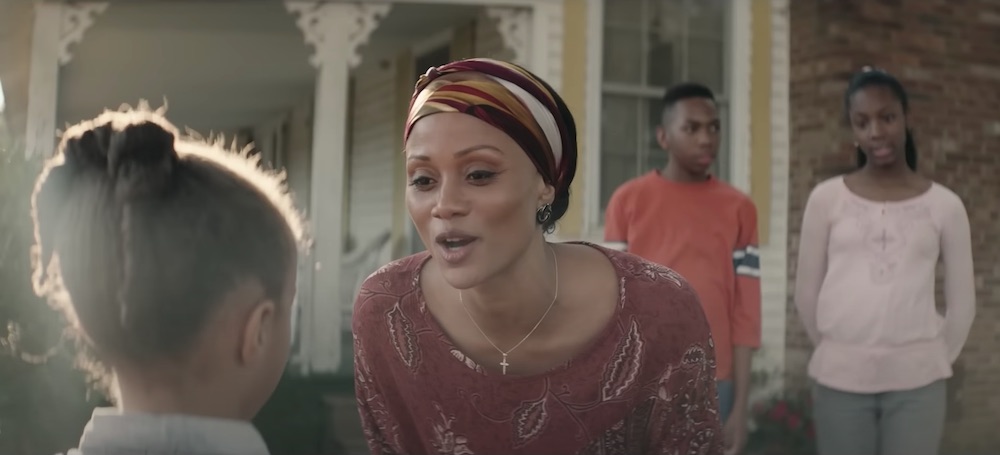Even capitalism has come for faith based cinema. With Sound of Freedom making so much money in 2023, Sound of Hope was attached to the beginning of this Angel Studios movie to clearly try to sell more tickets. In most cases, I’d have no problem lambasting a movie for it’s shameless cash grabbing. Possum Trot is the exception: another wonderful story about normal but incredible people that the faith based movies continue to highlight. Just the type of movies that should sell as many tickets as possible.
Possum Trot is is East Texas, and the story takes place in 1997 there. In this small black community, Reverend Martin (Demetrius Grosse) and his first lady Donna (Nika King) are living a simple but happy life, raising two kids (one with learning disabilities). After the sudden death of Donna’s mom, Donna becomes adrift, looking for some new purpose in her life. After praying, the Lord shows her some children playing, reminding her that her mom wanted her to have a bunch more grandkids. Inspired, Donna reaches out to Susan Ramsey (Elizabeth Mitchell), a local child service worker, to adopt a few of the harder kids in her system, including Terri (Diaana Babnicova), who’s journey to Possum Trot is about as bleak as humanly possible.
Possum Trot is another movie that can coast on its story alone. The real life tale is pure heroism. At first the Martins take in 3 foster children themselves, an incredible, selfless act. The fatal flaw in most faith based movies is that prayer is usually the “get out of hell free” writing device whenever the characters are backed into the corner. Here, faith is integral to the tale: used as the initial motivator and thematic driver for the story so there are fewer questions about its use in the screenplay. Though a bit saccharine and cliched, the best parts of Possum Trot are the evolving nature of the Martin’s home, and the day to day struggles of trying to make whole children who were previously broken. Faith here is the driving underbelly of the parents, relying on it and each other to push through the tough times. Yes, mistakes get made, but their hearts are in the right place, and God keeps them pushing forward when human instincts would say to pull back and just give up and take the easy path. Demetrius Gross and Nika King do a really great job holding the film together: we totally believe in their marriage, and their strong anchoring as community leaders but also honest, human parents.
But the reason Possum Trot got made was because it wasn’t just the Martin family. Driven by God to to good, the entire town adopts 77(!?!?!?) children in the foster system. The story’s focused on the Martin’s and their family dynamics, but we get little pieces of a bigger picture when Susan Ramsey shows up, giving us glimpses of other Possum Trot residences and the kids they adopt. So not only do the Martins have to worry about their kids, but the entire community as well, being the aid provider in the town. We feel the stress as the story goes along, with Reverend being pulled in all sorts of directions, while Donna struggles with the complications of raising damaged kids at home a lot of the time by herself. The story’s almost too big for the amateur writer/director Joshua Weigel, who can’t quite nail the epic scope this movie needs. He was right to focus on the Reverend and Donna centrally, but I would have loved 5-10 minutes with a few of the other community members and their day to day struggles, as they each use each other to learn and grow together to an even stronger, tighter knit community like what happened in real life.
If these faith based films continue to make decent money, I’m calling it. Eventually some overqualified director and writer is going to come in. They’ll take one of the many great stories these studios have, and make a great film out of it. Faith based moviemaking is the 2020’s version of the Horror genre: each film makes the same amount of money, allowing for more creativity because of the known, bankable money the films make. Faith and horror together? Seems weird, but they’re closer than you might think…

